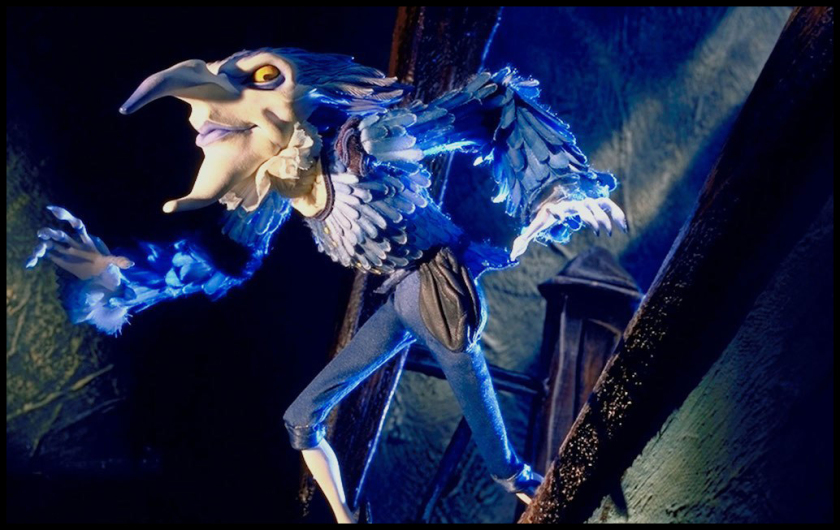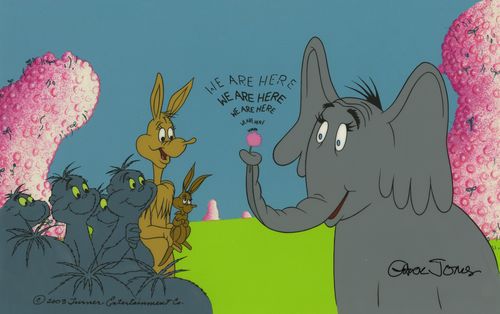 A still from Paul Berry’s wonderful short film
A still from Paul Berry’s wonderful short film
PTS Shakespeare read-through – Richard III, Act I sc iv.
Back in early 1997, I discovered that my eldest son was on his way. The pregnancy was unplanned, and to say the least a shock to a frankly very immature young man who was focussed on nothing but wine, women and song – not necessarily in that order. To be fair to him, books sometimes made an appearance, too. He was, I like to think, a completely different person to the one who’s writing this evening – I look back on him with some shame (on sleepness nights), listing the apologies I owe people.
Anyway, that night, I dreamed that I was eating scissors – large pairs, practically garden shears – but as I chewed them, they transformed into soft, grey liquorice (which I happen to enjoy, luckily).
Disturbed, I went to my mum, who has the folk wisdom of the ancients in some things, and absolutely no common-sense when it comes to others (oh, the stories I could tell). She does, though, have an almost medieval belief in dreams. I told her my dream, but not my news. And she told me that although I was expecting, dreading hard times ahead, I’d find that what I feared would actually be far, far better than expected.
She was right …
So I’m interested, with a lower case ‘i’, in dreams, with a lower case ‘d’. I have many very lucid dreams, and lots of nested dreams, a bit like the film Inception, where through effort I can transfer from one dream to another. They fascinate me, even as they unsettle me.
And if there’s another Shakespeare play in which dreams loom as large, I’ve yet to read it …
Act I sc iv comes to you courtesy of my friend Saffy, who could write English text-books but instead prefers dissecting things. I expressed a concern that writing about each scene of RIII would derail my PTS project (which she doesn’t read, by the way), to be told:
‘Carry on. You gotta finish what you started.’
I see that now – if I believe the scene merits its own post, I need to write it, not bow down to an artifically-set deadline. I mean, who’s in charge here?
Let’s move on. Clarence’s sole function in the play at this stage almost appears to be the creation of general sniggering through dramatic irony. A dangerous kind of sniggering, which aligns us with Richard, and will be hard to shake off as his crimes accelerate.
Clarence’s dream is the opposite of Caliban’s: whereas the latter ‘cried to dream again’ (TEMPEST, III.ii), Clarence:
‘would not spend another such night
Though ’twere to buy a world of happy days.’ (I.iv.5-6)
Several things grabbed my attention.
The first is that it is the point in the play where I start noticing that lines referring to Richard often, I mean noticeably often, break the pattern of iambic pentameter, almost as if characters subliminally shudder or lose a little grip on themselves at the mention of his name. Look at:
‘And in my company my brother Gloucester‘ (I.iv.11)
and
‘Methought that Gloucester stumbled, and in falling’ (I.iv.18)
My emphasis.
The second thing that occurred to me is that being a history play, many people know the story; this dramatic irony creates a frisson on its own. Whilst Richard’s role in his brother’s death appears ahistorical in my reading of John Julius Norwich and others, the manner of death appears consistent. Thus, lines like:
‘And was embarked to cross to Burgundy’ (I.iv.10)
and
‘What dreadful noise of water in mine ears’ (I.iv.22)
appear humourously prophetic, especially when you combine them with the Second Murderer’s dry:
‘You shall have wine enough, my lord, anon.’ (I.iv.161)
These are, surely, tremendous fun – as long as you are on Richard’s side.
The dream is an expression not just of mortal fear, but of a guilty conscience. When teaching Richard III, I often give Clarence the nickname ‘the flip-flopper’, and he is just as conscious as I am, or the audience might be, that he is paying for opposing his eldest brother (and King, who gets the soubriquet ‘the playboy’) in previous plays. Again, it muddies the waters (if you pardon the pun) to see Richard as an instrument of divine justice.
Clarence’s long memory is echoed by that of his murderers. We go from the self awareness of:
‘false, fleeting, perjured Clarence’ (I.iv.55)
to a vicious change from ‘you’ to ‘thou’ as the murderers confront him.
‘Thou didst receive the sacrament to fight
In quarrel of the house of Lancaster, (2 MURDERER)
And like a traitor to the name of God
Didst break that vow, and with thy treacherous blade
Unrip’st the bowels of thy sovereign’s son’ (1 MURDERER I.iv.202-206)
It might be worth clarifying here that the sovereign they are talking about here is actually Henry VI. Long memories, and shifting allegiances, these murderers.
Time and space don’t permit a detailed account of the various stages of Clarence’s pleading for his life, interesting as they are. I want to touch on two other small parts of the scene that I found significant for their typicality and intertextuality with other plays.
Brakenbury‘s short speech before the murderers arrive speaks to the essential sameness of the human condition, and the fact that class, wealth and honour do not guarantee happiness:
‘Princes have but their titles for their glories,
An outward honour for an inward toil;
And for unfelt imaginations
They often feel a world of restless cares,
So that between their titles and low name
There’s nothing differs but the outward fame.’ (I.iv.78-83)
This lengthy, heartfelt sentence echoes what I have found elsewhere in the plays: in Macbeth, in Henry VI, Richard II, Henry IV and also in Henry V on the eve of battle. A lofty status doesn’t shield you from a troubled mind. In fact, it might render you more susceptible to a life of worry and unfulfilment. At the very least, you are loaded with others’ worries and cares, as well as the ones you have brought upon yourself.
Finally, a word on conscience. I think I’ve probably dealt with it elsewhere, and made intertextual links to Hamlet, Macbeth and Richard II. Murderer 2 sounds incredibly like Hamlet in telling his wavering companion:
‘it makes a man a coward’ (I.iv.133-134)
We know, at least, that it causes bad dreams – now, and later in the play too …
REFERENCES:
James R Siemon (ed), King Richard III, Arden Shakespeare, third edition
Other quotations from Shakespeare’s plays are taken from www.opensourceshakespeare.org
Share this:






